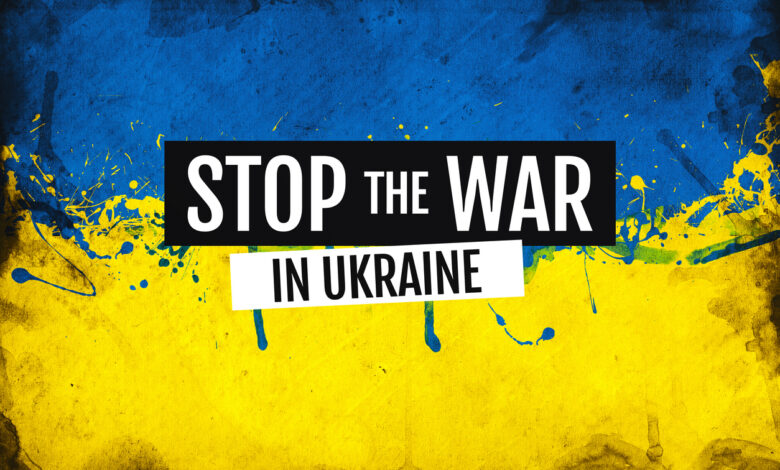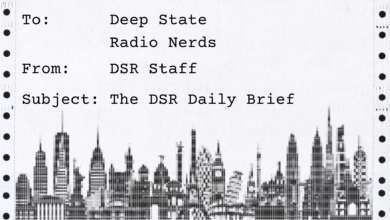Are We Doing Enough to Help Ukraine?

This morning on @Morning_Joe, @JoeNBC asked me, and I’m paraphrasing, what it was going to take for the West to defend Ukraine, to step up and defend the innocent people of that country from slaughter at the hands of the Russians. I offered up a pretty standard answer.
I said we would ramp up military aid and so on but that it would take crossing a lot of red lines to get us to act. Sometimes discussions on TV shows just stream by, questions come and answers go and we move on. But I have to say, this question haunts me.
Because letting Ukrainians die is horrific and unjust. The story of the past century is of slaughters and genocides that occurred because the political and military calculus was that the cost of intervention was too high, too risky. And every one of those answers seemed right at the time and now in retrospect seem wrong, terribly, terribly wrong. Surely, the answer is not triggering a nuclear war. But why is it that we who are deterred by Russian nuclear threats do not feel Russians would be deterred by ours.
Oh, I understand that Putin is a barbarian. As I said to one of the crew while walking out of the studio this morning, “You can’t say it on the air, but I’m from New Jersey and the only accurate way to describe him is he’s a motherfucker.” He’s as bad a man as is on the planet.
So, yes, he might enter a nuclear exchange. But would everyone around him permit that? Would they embrace the destruction of Russia? Further, it is taken as a matter of near theology that any military response to Putin must necessarily escalate to nuclear war.
Why? Who sets those rules? What if, as Wes Clark suggested on CNN last night, we asked the UN to step up and send in blue helmeted troops to protect humanitarian corridors and perhaps Western Ukraine? Would Russia block it? Is there a way around that?
What if we enlisted non-NATO nations to play that role? What if we said European neighbors would play that role but only act in defense? Russia might call it provocative, but frankly, we do nothing, and they manufacture provocations like this myth of bioweapons facilities.
Certainly, no one would pursue any action that is more egregious than were there actually to be bioweapons facilities. Russia implies the Ukrainians are Nazis and of course, they are not. They speak of anti-Russian plots and of course, they are absurd fabrications.
In other words, they will do what they want regardless of what we do. Another argument is that if we intervened, we would defeat them and because Putin could not bear that he would launch a nuclear war. Well, first of all, Ukraine is likely to beat him sooner or later. (with our assistance.) That not only does not deter us, that’s our goal. Secondly, we are waging total economic war against Russia, we will bring the economy to its knees & trigger massive unhappiness among the Russian people, how is that less than some modest military intervention?
I know thoughtful scholars who would argue it is, but where is the evidence? Again, I’m not dismissing it, I just wonder if we are spending too much time negotiating with ourselves, because predicting costly outcomes is the low-risk path to avoiding taking action.
Can’t the international community lay down a few red lines of our own? Stop killing innocent civilians or else? Stop using banned munitions or else? Stop threatening nuclear accidents at power plants or else? Or can’t we set some ground rules, perhaps in conjunction with the UN? Ground rules that define a defensive mission and make it clear that defensive actions (by their very nature) are not escalatory and that they should not be seen as such and that we will respond to escalation harshly. I’ve been very impressed with the Biden Administration and the Western response to date. I believe Biden deserves credit for not taking the nuclear bait from Putin. But I am increasingly sympathetic to the idea (raised I think by @JonLemire during this morning’s show) that a little more strategic ambiguity may be in order.
I don’t know the answers and fortunately military strategy and foreign policy are not made in Twitter threads (or on cable television shows). But we are on the brink of once again committing the great crime of the past century and that is not doing enough to help millions at risk.
And we need to recognize that it is Putin’s confidence that we will not act that enables him to take such barbarous actions. (That calculus has, after all, worked for him in Chechnya, Syria, Georgia, and Crimea.)
On the show, I said we must send a clear message to him that we are breaking the pattern of the past with regard to what will happen after this crisis–that he will not simply be embraced again by the international community, that he will be held accountable.
But I walked away deeply unsettled that we are, through our inaction, already giving him all the license he needs to commit new atrocities. We need to find a way, ideally with the international community, ideally with rules and communications that minimize the risk of escalation, ideally forcefully enough and soon enough to save Ukrainian lives…to break the pattern that has occurred as he has conducted his past wars. We need to grapple with this hard question now or we will most certainly be haunted by it for the rest of our lives.

